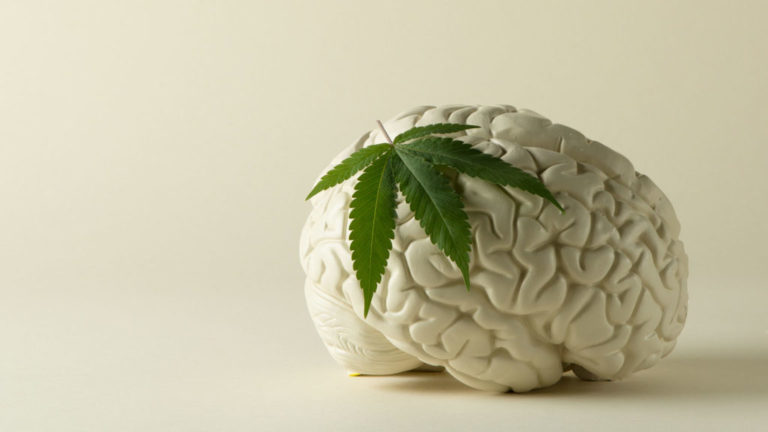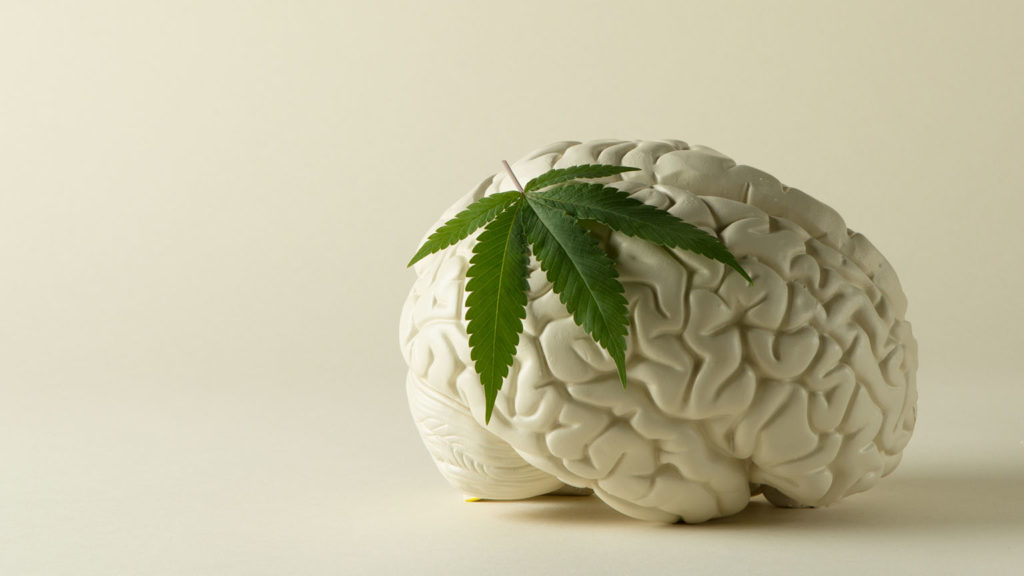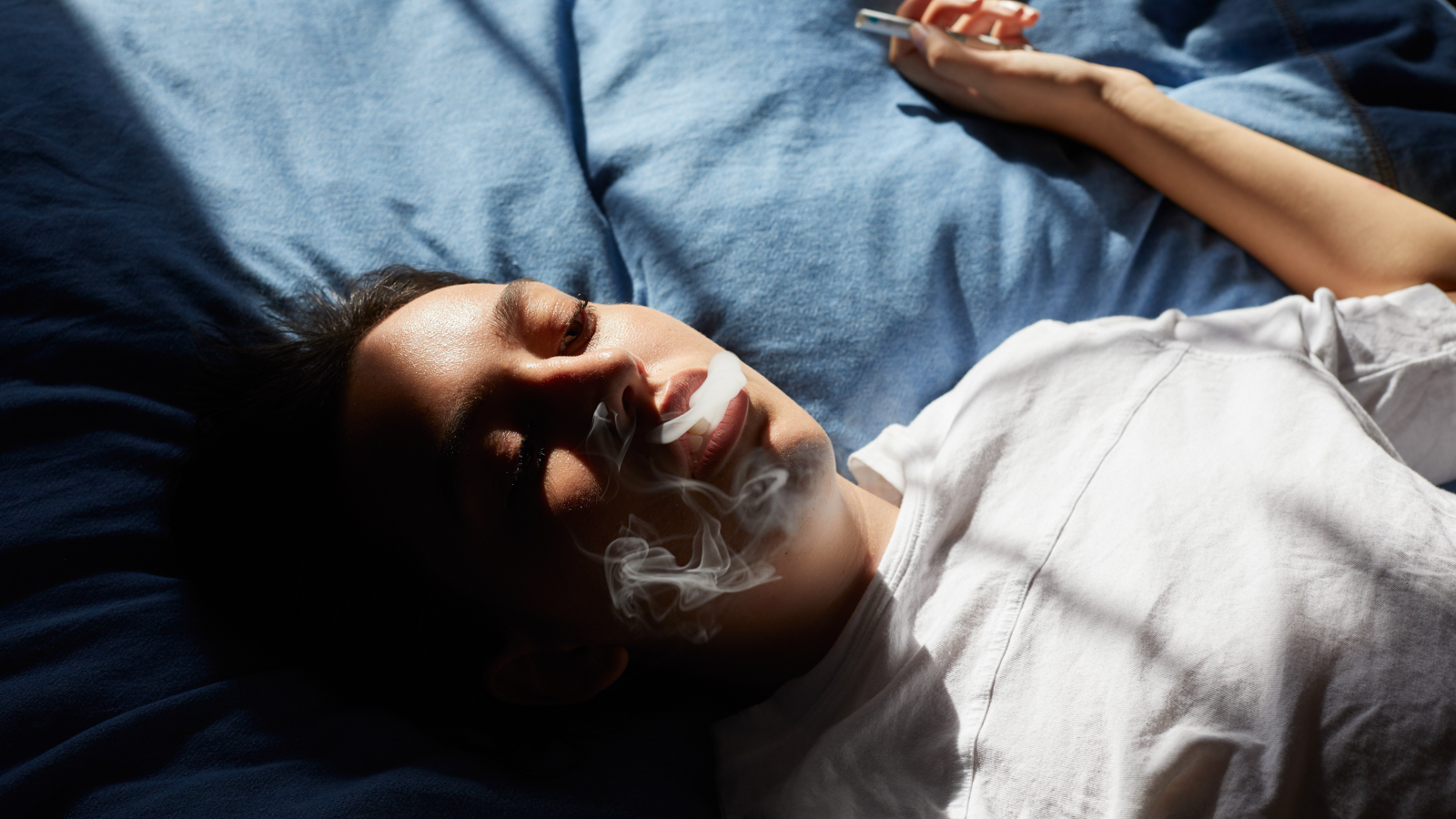Extreme highs and lows characterize bipolar disorder, a neurological condition that affects more than 2 million Americans. Individuals with bipolar disorder may experience intense bursts of energy followed by depressive episodes. They may have racing thoughts, be easily distracted, and exhibit reckless behavior.
Cannabis has shown potential as an alternative treatment for anxiety, but could the plant also help patients with bipolar disorder?
An overview of the research
Most research has shown that cannabis is unlikely to successfully treat bipolar disorder. In many cases, marijuana may exacerbate the symptoms. In addition, some research has suggested that cannabis consumption could even trigger the disorder in certain individuals.
 Photo by: Gina Coleman/Weedmaps
Photo by: Gina Coleman/WeedmapsImage lightbox

The studies on cannabis and bipolar disorder
A case report published in 2009 in the journal Psychiatry (Edgmont) examined one instance of a young man experiencing psychotic symptoms after cessation of cannabis consumption. The 21-year-old man had been consuming cannabis daily since the age of 16 but was no longer consuming at the time of the case study. He was subsequently diagnosed with bipolar disorder with psychotic features. Researchers noted that there was no history of psychiatric illness in his family. The young man's symptoms ultimately resolved with prescription medication. It was unclear from the case report whether factors other than cannabis could have contributed to the individual's bipolar diagnosis.
One research analysis published in 2018 in Schizophrenia Bulletin discussed a link between cannabis and hypomania. Hypomania is an elevated state of energy and mood often associated with bipolar disorder. However, researchers stated that there were limitations to the study and that it is unclear whether cannabis is a risk factor for hypomania.
The limited research that exists on cannabis and bipolar disorder may not be encouraging, but some patients have found relief with medical marijuana.
Medical cannabis patients share their stories
Joshua Fields (name changed to protect privacy) was diagnosed with bipolar disorder when he was 27 years old. As a child he had been diagnosed with attention deficit hyperactivity disorder (ADHD), often a comorbid condition with bipolar disorder. “The bipolar diagnosis wasn't a big shock. I kind of always suspected I could be bipolar,” he told Weedmaps in a phone interview.
The 31-year-old Colorado native started using medical cannabis shortly after his bipolar diagnosis. “I dose with pretty low levels of THC because it can make me super anxious. Weed with more CBD has been better for me. Actually it's been a lifesaver,” he said.
At the worst of his bipolar disorder, just prior to diagnosis, Joshua had been experiencing such severe mood swings that his relationships and career were suffering. “My girlfriend broke up with me and I came really close to losing my job,” he shared.
When he started using whole-plant CBD-rich tinctures under his primary physician's care, Joshua's mood swings abated and he became more focused on his work as an insurance claims agent. “I also started sleeping better and just felt more relaxed overall.”
 Photo by: Gina Coleman/Weedmaps
Photo by: Gina Coleman/WeedmapsImage lightbox

It is crucial to note that Joshua's experience can likely be credited to the fact that he uses cannabis products that contain an extremely high ratio of CBD to THC. Research has shown that bipolar patients who consume marijuana high in THC often have adverse outcomes.
There is also scarce scientific evidence demonstrating that CBD can treat bipolar disorder, according to Dr. Bonni Goldstein, a physician and medical adviser to Weedmaps. “One study from 2008 looked at CBD use for bipolar disorder in two patients experiencing manic episodes; however, CBD was only given for 24 days and was used as an isolate, which, based on my clinical experience, are not ideal conditions to assess effects,” she said. Whether or not the conditions were clinically ideal, the CBD appears to have been well-tolerated in the two individuals. “Neither patient had side effects even with high doses of CBD,” Goldstein reported.
As Goldstein indicated, that study is not enough to confirm whether CBD is an effective treatment for bipolar disorder. “Unfortunately, CBD has not otherwise been studied in patients with bipolar disorder, so at this time, there is no scientific evidence that cannabinoids can help with the symptoms of this condition,” Goldstein said.
What the experts say
While there may not be adequate scientific evidence for treating bipolar disorder with cannabis or CBD, there is some anecdotal evidence, according to Goldstein. “There are anecdotal reports of patients with bipolar disorder who state that cannabis has helped with anxiety, sleep, mood, and overall improvements in their day-to-day lives,” Goldstein said.
Goldstein's experience as a physician supports Joshua Fields' positive outcomes with CBD-dominant tinctures. “In my clinical experience, adults using the combination of whole-plant CBD and THC together in cannabis products (such as tinctures) report the best results when compared to those using these compounds separately. The combination has numerous benefits, including less risk of tolerance to THC (which often leads to loss of medicinal benefits) and reported significant improvement in anxiety and overall mood by patients.”
Because of this anecdotal evidence, Goldstein believes that clinical trials may be helpful. “Clinical trials of these patients using combination CBD and THC are certainly warranted, especially since the current research on cannabinoids reveals little to no risk in terms of side effects under medical supervision.”
The key term is under medical supervision. Goldstein stresses that a qualified physician is essential to treat a patient with bipolar disorder. “Treating bipolar disorder with cannabis, especially without medical supervision, is quite tricky. Multiple studies on cannabis use in bipolar patients report negative outcomes, such as increased risk of manic symptoms and greater overall illness severity, decreased likelihood of remission rates, greater work impairment and lower rates of recovery,” she explained.
Bottom line on marijuana and bipolar disorder
Current scientific research indicates that marijuana is probably not an appropriate treatment for bipolar disorder and could, in some cases, exacerbate or even trigger the condition. The exception could be cannabis containing high levels of whole-plant CBD and low levels of THC, but further research beyond anecdotal evidence is necessary. Bipolar disorder should always be treated under the care of a qualified medical professional.



